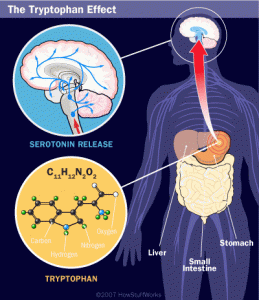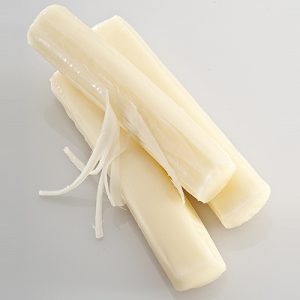We are learning more every day about how what we eat affects a lot more than just our waistline. We know it can affect our moods, our breathing, our hearts and our joints. But did you know it can affect how well you sleep?
If you’re having trouble sleeping, and everyone does from time to time, you can reach for a good meal instead of a bottle of sleeping pills. Some things are tried and true, the kind of things your mother might have recommended. Others are based on actual science.
Most of us know what not to eat before bedtime: heavy meals, spicy foods or caffeine just for starters. These can cause indigestion or acid reflux. As a general rule of thumb, do not eat a full meal less than three hours before your planned bedtime. But that does not mean you can’t or shouldn’t eat anything before bed. What most people don’t know is what you can eat before going to the land of nod.
What we’re looking for here are foods that combine tryptophan, an amino acid we often associate with turkey, and complex carbohydrates, like nuts and whole grains. Tryptophan converts to serotonin and melatonin, brain chemicals that cause you to relax. While that won’t put you to sleep, it will make it easier to go to sleep, especially if you’ve had a full day.
Complex carbohydrates also promote the development of serotonin. That’s why most comfort foods are very high in carbs. Using complex carbs rather than simple or refined carbs are slower to digest and thus are less likely to cause a sugar crash a couple of hours later.
If you combine tryptophan and healthy carbs, you get a combination that will help you get to sleep and stay asleep longer. The slower digestion of the carbs means the tryptophan stays in your system longer.
And don’t think you have to turn to turkey to get tryptophan. Bananas, nuts, seeds, honey and eggs have high amounts of this protein. A teaspoon of honey in some hot herbal tea with a handful of nuts before going to bed could really help you get to dreamland easier.
Not a hot tea fan? Have half a banana. Another good combination is whole wheat crackers and natural peanut butter. The crackers give you the whole grain goodness of complex carbohydrates while the peanut butter provides the tryptophan. Natural peanut butter is better because it has less sugar and hydrogenated vegetable oil, a source of trans fats and free radicals that are bad for your arteries.
Low-fat string cheese is another good option for bedtime snacking. The lean protein will help you relax and keep your tummy busy for several hours, keeping your blood sugar on an even keel. A bowl of whole grain, low sugar cereal will also do the job. Sugary cereals can cause a sugar crash in the middle of the night, which will wake you up. You might find it hard to get back to sleep if that happens.
Try not to eat your snack just before you hit the sheets. Try to have that snack about 30 minutes to an hour beforehand.





